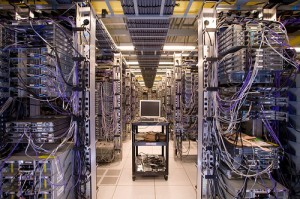Why have stalwarts like Honeywell, Datalogic and Intermec focused so heavily on advancing enterprise mobility solutions for corporations? Why is it that some estimates put the ratio at 1 in 5 employees as being “mobile”, or connected? More importantly, why have so many companies decided to upgrade their supply chain practices with handheld, rugged mobile computers, barcode scanners and multiple mobile devices? In order to answer these questions, think of the speed at which business transactions happen today. Think of the importance of being able to keep pace with how quickly business landscapes change. Think of how your customers need suppliers who are able to react and ones that are not inhibited by manual processes that waste valuable time. Ultimately, think of why these aforementioned companies have invested so heavily in this market and then ask yourself, if the large players in industry are investing in mobility, shouldn’t I?
This is truly a global economy, one where transactions must be reconciled immediately. An economy where companies operate in different time zones and with different currencies. An economy where travelling salespeople, project managers and field service technicians must be as up-to-date with day-to-day business transactions as everyone back at the office. Ultimately, it’s an economy where the speed of today’s business transactions calls for an enterprise mobility solution that can handle the workload. So, what must your company do to be a part of this movement? More importantly, why should your company emulate the successes of your largest competitors? Do you even have a choice in the matter, or will your failure to act mean lost business?
Upgrading your enterprise mobility network won’t just improve how your company manages its inventory and supply chain. It ultimately means you’ve upgraded your entire operations. It means faster turn times on parts, raw materials and finished goods. It means more accurate inventory counting, advance warning of delivery delays, and a better understanding of the impact of material shortages. It means you’ll now have the ability to reconcile inventory immediately upon receiving a shipment. It means your employees can barcode inventory upon receipt and immediately approve shipments and their corresponding volumes. Any employee, either in the office or on the road, will enjoy the exact same visibility and the ability to make timely decisions will improve for your entire organization.
Making better decisions is the ultimate goal and one that is attainable when you’ve upgraded your mobility network. While a number of companies have rationalized their decision to stick with manual processes, market leaders and innovators like Honeywell and others are moving forward. These companies understand that to remain idle is simply a recipe for disaster. They understand that companies must have access to immediate information. Most importantly, they understand the importance of being able to interpret that information equally as fast as it is secured. That can’t possibly happen when employees and management are sitting idle, waiting for confirmation. Finally, it can’t possibly happen with customers who will surely abandon your company if they feel your competitor provides better, faster service.

